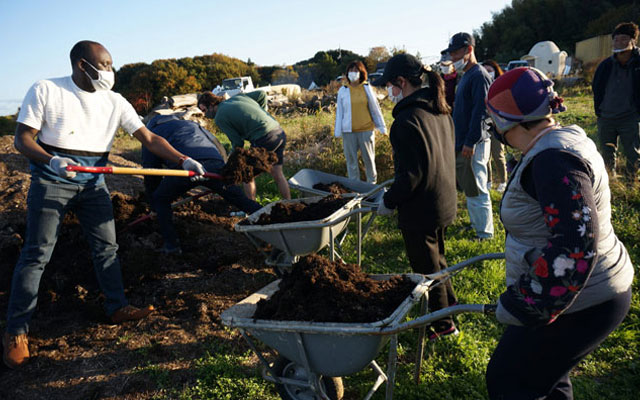Incentive planners have noticed an increase in demand among corporates asking for unique local experiences to be added to their itineraries post-lockdown.
Moreover, these local activities also need to allow corporates to positively contribute to and uplift the lives of local communities.

Ricky Chen, project manager of Taiwan Tour, told TTGmice: “Local experiences are a must these days in most incentive itineraries. This actually started before the pandemic, but (I noticed that) more and more (corporates are requesting).”
One example of a local experience that Taiwan Tour offers includes a tribal culture and hunter school in Taitung, Hualien.
Chen shared that corporates will have the chance to learn to track animals through their footprints and their dung.
Over in Japan, the Kobe Convention Bureau uses unique local experiences as a major selling point to attract incentive groups.
Lance Ferguson, the bureau’s assistant manager meetings & events, said: “Being a city located between two popular destinations Osaka and Kyoto, Kobe needs to come develop unique local experiences in order to stand out from the crowd.”
He suggested experiencing the “mountain life” in Kobe, where corporate groups can hike Mt. Maya, and experience zazen, a form of meditation practised by the Buddhist monks of the Tenjoji Temple.
Another interesting local experience Kobe offers is the Seedbed Project based on Awaji Island. The project, run by the Tane no Chikara organisation, aims to create a sustainable community by managing an abandoned three-hectare farm.
There, workshop participants will get to work together to build and create parts of a village called Seedbed. The experience is designed to inspire through co-creation, and leave a lasting positive impact on the group and local community.
Such experiences usually would appeal to mature travel markets that are well-travelled and are on the lookout for new experiences and destinations, noted Ferguson.
Meanwhile, although Richard Woss, managing director of ATI Travel, also indicated that demand for local experiences is being increasingly part of incentive itineraries, the “level”, or how in-depth local experiences go, depends on the group. For ATI Travel, a common CSR programme would be just a regular beach cleaning session.
Ferguson agreed, and stated that the depth of local experiences and the value of giving back to society varied among corporates.
Some groups aim to create memorable experiences for participants while leaving a lasting impact on the local community (such as the Seedbed Project), while others may opt to visit a sake brewery; one of the more popular requests.
“Kobe is the biggest producer of Sake in Japan and travellers can learn about sustainability at the breweries. Rice and water are a big part in the brewing of sake, so how the water is treated, and how the rice is grown, is something that corporates can also learn about,” he said.





















